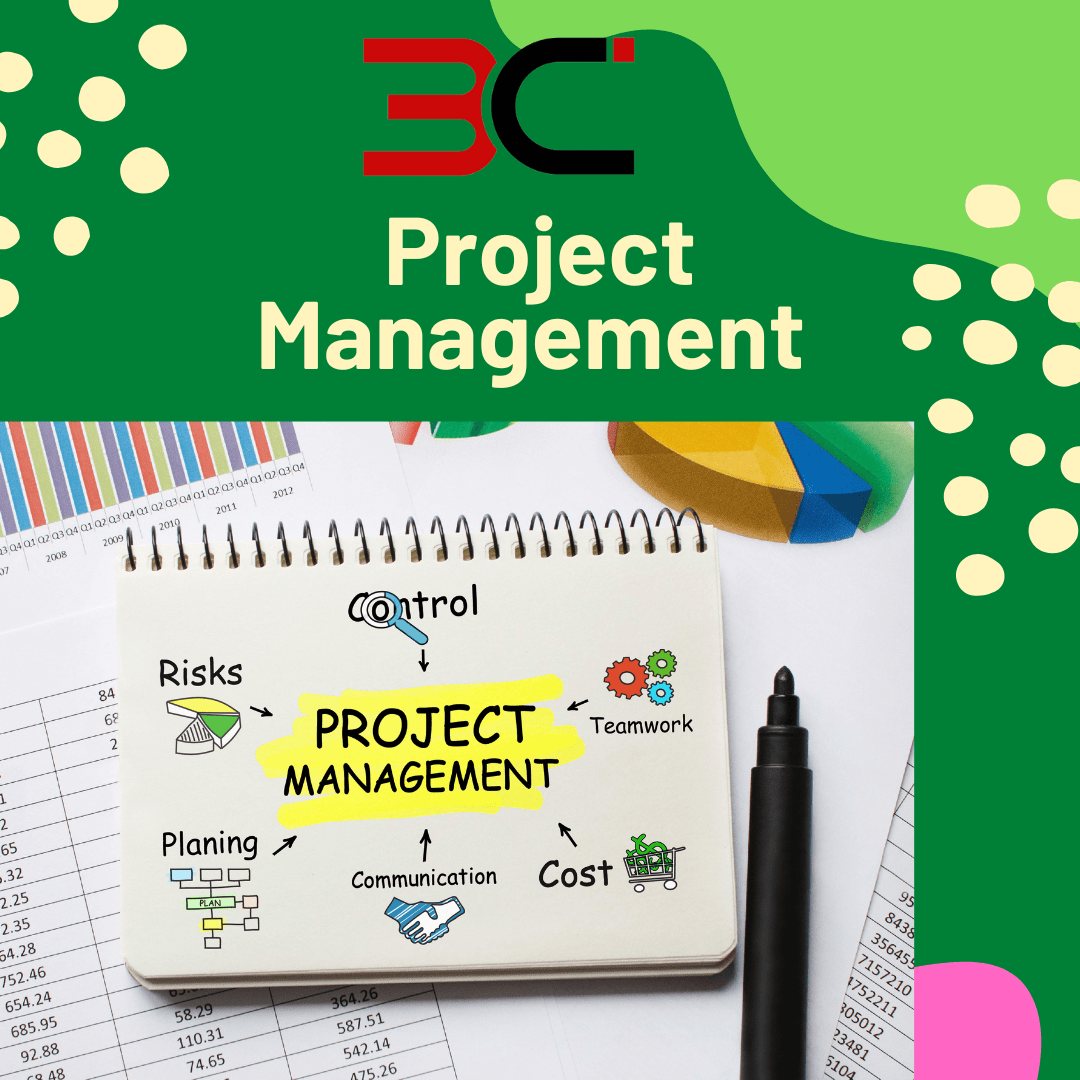If you are in the project management industry, you should be familiar with the term “PMP” (or Project Management Professional). Familiar or not, we will give you the necessary insights about PMP as much as possible.
In case you don’t know, the PMP is a well-known certification with more than a million holders worldwide. For numerous advantages, project managers often try to get PMP certified to enhance their professional careers. But is PMP certification worth it? Do you really need this certificate to be a successful project manager? We will find everything in this article.
So without further ado, let’s get started.
What is PMP (Project Management Professional)?
You may have already figured out that PMP stands for “Project Management Professional.” The Project Management Professional (PMP) credential is considered a professional standard for project managers and is offered by the Project Management Institute (PMI), USA.
According to a survey by PMI,
- Project management professionals will have a ton of opportunities.
The demand for project managers with a standardized set of skills is rising since companies hire people from diverse cultural backgrounds. It would be expected of these project managers to take on projects involving system reorganizations, translate strategic vision into achievable objectives, and guarantee successful outcomes while juggling multiple projects.
More than 600,000 members around the world are getting PMP training materials and networking opportunities from the PMI. Being a recognized project management organization in the world, we can at least expect this.
The following video gives an overview of PMP or Project Management Professionals –
What is a PMP certificate?
The Project Management Professional (PMP) certification assesses a candidate’s capacity to oversee the people, procedures, and business priorities of a professional project. This is why it is a widely respected credential for project managers. The Project Management Institute (PMI) declares –
- Globally, more than a million people hold PMP certifications.
PMI introduced the PMP certificate as solid proof for project managers who have the skill set to manage a project successfully. A company with an elite team of project managers with PMP certifications will undoubtedly succeed. They have the leadership experience and skills to run a project despite the type of industry.
Your high level of proficiency is confirmed by your PMP certification in the following ways –
- Business Environment: Emphasizing a project’s accomplishments and how they relate to the overall strategic organizational goals.
- Process: Choosing the best working method for each project by combining agile, predictive, and hybrid approaches.
- People: Realizing you have the ability to steer and inspire a project team throughout its duration.
Why is it important to get a PMP certificate?
The PMP certificate proves the smartness of the project manager. It demonstrates that he possesses the ability to boost organizational impact both locally and globally and drive business results.
This particular research indicates –
- By 2030, around 2.3 million roles need to be filled for project management.
Because of this, qualified project managers are in high demand. The PMP certification will validate the best candidate since the exam is designed by project professionals for project professionals.
The PMP is no joke. That is why it was ranked as the top-level certification for project management by the CIO magazine. It gives the employer a hint about the dedication, skillset, and excellence of the candidate.
We should also point out that project managers with PMP certification typically earn 16% more on average globally and 32% more in the US than those without. So, it clearly suggests the importance of the PMP certificate.
The following chart shows a direct comparison of PMP certification with others.
The Benefits of PMP Certification –
When we talk about the importance of the PMP certification, we must include the benefits of the PMP certification. Here are a few mentionable –
- It offers a well-organized framework for managing projects.
- It increases your professional influence in the field of project management.
- It develops fundamental project management abilities.
- This raises your chances of getting a pay raise and a promotion.
- It provides access to employment possibilities.
- Statistics indicate a PMP certification can actually increase your earning potential.
Because of the many benefits of the PMP certification, around 79% of project managers have already obtained the certificate (according to a survey).
How to get PMP certified?
Now the big question comes to mind – “How do I get the PMP certification?” Well, you have to go through a competitive exam before getting the certificate. We will break down the following steps one by one so that you can prepare yourself for the PMP examination in the best way possible.
1. PMP Eligibility
It takes effort to become a PMP-certified professional, which is why it is valuable. Have you ever managed projects in the real world? If you have, then great; the hardest part is over. Be certain that you satisfy one of the following groups of PMP Certification requirements before submitting your application –
Group A
- A 4-year degree.
- Project leading experience for 36 months.
- 35 hours of education or training in project management.
- An associate in project management certification.
Group B
- A high school diploma or an associate’s degree.
- Project leading experience for 60 months.
- 35 hours of education or training in project management.
- CAPM Certification.
2. Application
Before you apply for the PMP exam, you need to open an account with PMI. This requires disclosing basic personal data, such as your educational background and specifics of the projects you have worked on. After everything is done, you have to pay the one-time exam fee and set a convenient date for the exam.
3. Preparation
Now that you have applied for the PMP exam, you must get serious. You can look for training courses or prepare your own. Either way, experts suggest spending 60-120 hours studying. Depending on how quickly you study, this could take a few months.
4. Go for the PMP Examination
After preparing, you need to take the exam for PMP certification. The exam will be held on the date that you scheduled. You may have to go physically to a nearby testing site, or it can also be held online. Typically, the exam will last for around 4 hours.
5. Certification Maintenance
You should know that the PMP certification is valid for 3 years. To maintain it, you must spend at least 60 hours per year on professional development activities. If not, you must retake the test.
Some Considerations for PMP Certification
There is no denying that having a PMP certification has some great professional benefits. Before deciding whether pursuing PMP certification is best for you, it’s crucial to consider the big picture.
Here are a few things to consider for PMP certification –
- It costs a lot of money to become PMP certified. Be ready to invest a significant amount of money and time in your PMP preparation, examination, and training. Suppose you want to apply for the PMP certification. For that, you need to go through 35 hours of formal project management training or have the CAPM certification. Additionally, you might choose to spend money on a PMP training program or other study resources to get ready for the PMP exam.
- In contrast to strategic reasoning and original problem-solving, the PMP certification is more theoretical. You could spend all day outlining strategies for handling risks and resolving disputes. However, this might not be fruitful because people and projects don’t always adapt well. In reality, nothing compares to real-world experience that teaches you how to think quickly about dealing with the inevitable curveballs that come with the project.
- A PMP certification will be truly beneficial when the company follows the rules strictly. For a project manager in the manufacturing or construction industries, for example, PMP certification might be a no-brainer. On the other hand, it won’t be very beneficial for a digital project manager who deals with projects that continuously change.
PMP Exam Process
You have to take the PMP examination after applying for it. It would be helpful for you if you knew a few things in advance. The PMP exam can be either online or paper-based. If the candidate takes the test on the computer, he will receive the answer immediately. And you will see the result from the score report after finishing the exam. Test results and score reports are typically provided to candidates who take paper-based exams in a timely manner of four weeks.
No reference materials are permitted; the exam is closed-book. Each project management process group’s proficiency levels are also rated by PMI and divided into 4 levels. They are –
- Above Target
- Target
- Below Target
- Needs Improvement
A total of 180 questions will be given in the exam. You have to answer all of them within 4 hours. The exam will not include marks for the 5 pre-released questions. The score will be determined by the other 175 questions. All the questions are multiple-choice questions, containing one correct answer and three wrong answers.
A project manager who wants to become certified as a PMP must first fulfill certain requirements and then pass an exam with 180 questions, each of which could be related to project management in the real world. The PMP Code of Ethics and the PMBOK specification are used to write the exam questions.
The New PMP Exam Syllabus
The Exam Content Outline (ECO) is the foundation for the PMP exam. Every four to five years, PMI updates the ECO. The exam has been graded on three different domains since January 2021, they are –
- 42% of People
- 50& on Process
- 8% on Business Environment
The following groups are given more weight in the PMP exam syllabus:
- Executing the project (31%)
- Monitoring and controlling the project (25%)
- Planning the project (24%)
- Initiating the project (13%)
- Closing the project (7%)
These five groups are mapped to the following ten project management knowledge areas:
- Project Integration Management
- Project Quality Management
- Project Schedule Management
- Project Scope Management
- Project Resource Management
- Project Cost Management
- Project Risk Management
- Project Stakeholder Management
- Project Procurement Management
- Project Communications Management
——————————————————–
Source: Wikipedia
PMP Courses/PMP Training Online
There are many PMP online courses and training available. There are free and paid courses. However, we suggest going for the paid ones to get the best PMP exam prep. Here are some of the mentionable PMP courses that you can find online –
- Project Management Professional Certificate (From the University of California)
- PMP Exam Prep Seminar – Complete Exam Coverage with 35 PDUs (From Udemy)
- PMP Exam Prep Project Management Professional Certification (From Udemy)
- Project Management: Professional Certificate (From Google)
- PMP Certification Training in Bangladesh
- PMP Certification Training Course in Dhaka (From Simplilearn)
With that said, check out some PMBOK guides, such as A Guide to the Project Management Body of Knowledge, to ensure the best preparation. Numerous exam preparation books will help you become accustomed to the test’s questions and structure. It would be beneficial to take a few practice tests before the actual exam.
Bottom Line for Project Management Professional
Project Management Professional (PMP) is all about your dedication. It can obviously give a boost to your professional career. However, you need to make sure you are ready to achieve it. The decision to pursue PMP certification is entirely up to you. It also depends on how much importance your organization gives to project management.
If you think you can bear the cost and effort of applying for the PMP exam, then take it. The more you learn, the more you will grow. Just ensure you remain flexible enough to adjust to the project and maintain an open mind.
Project Management with MS Project & Primavera

